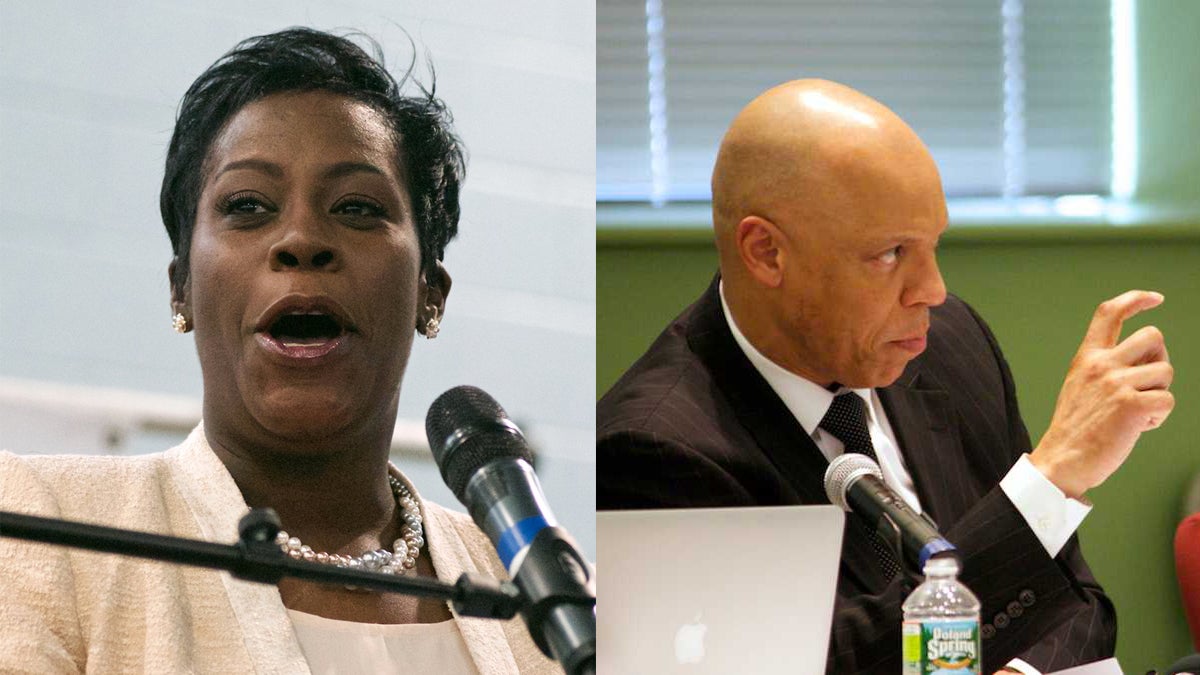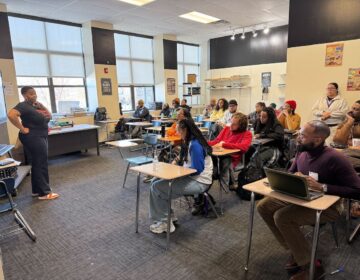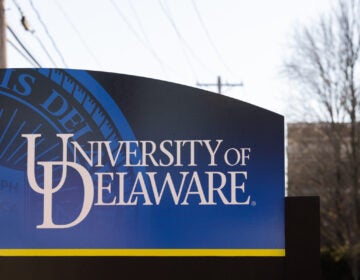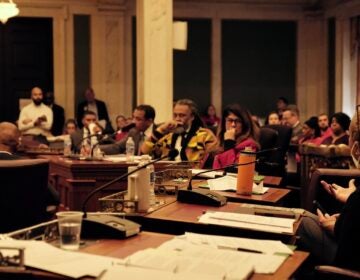Philly schools surplus eroded by ongoing state budget impasse

Philadelphia Councilwoman Cherelle Parker questioned schools superintendent William R. Hite on the district's $88 million surplus. (Bastiaan Slabbers and Nathaniel Hamilton/for NewsWorks)
Despite a persistent lack of resources, the School District of Philadelphia ended its last fiscal year in June with an $88 million surplus.
Because of the ongoing state budget impasse, school officials said, those funds will not mean more services for children in classrooms this year.
At a City Council education committee hearing Monday, Councilwoman Cherelle Parker questioned Superintendent William Hite about the surplus, as outlined in a report released last week.
“After all the budget cuts that the school district has had to deal with over the past five years now in particular, how do we end up with a surplus?” Parker said.
Hite explained that local tax revenues outperformed expectations and that the district decided against immediately committing the money to classrooms for this school year because of what looked to become a logjam in the state Capitol.
“Quite frankly, it’s just a timing issue. More monies came available later in the year during a time when there was uncertainty in Harrisburg,” said Hite in a follow-up interview after the hearing. “So it was hard to book those monies when we didn’t know if we would have a budget that provided us with sufficient resources.”
History has vindicated that decision, Hite said. The district didn’t receive any state funding until late December. It managed to keep its schools open by taking out $550 million in loans, but the $88 million surplus helped as well.
“Thank goodness, now, we didn’t do anything with it, because those monies have allowed us to go later in the year, providing for expenditures and paying vendors.”
In December, Gov. Tom Wolf signed off on only a half year’s worth of school spending in an effort to leverage the Republican-held House and Senate into agreeing to a higher education funding boost.
Negotiations on a larger deal have been unproductive since before Christmas.
The district’s chief financial officer, Uri Monson, says that the district’s relatively small surplus should make it easier, not harder to argue for increased funding from the city and state.
“Our goal is to be fiscally responsible and show all of our funding sources that we are fiscally responsible and transparent,” said Monson. “We want to be able to show them where we are, where we think we’re going, and what the underlying assumptions are. It’s really all about transparency.”
The district projects this year’s short-term loans to carry an additional $3 million in debt service payments.
WHYY is your source for fact-based, in-depth journalism and information. As a nonprofit organization, we rely on financial support from readers like you. Please give today.





